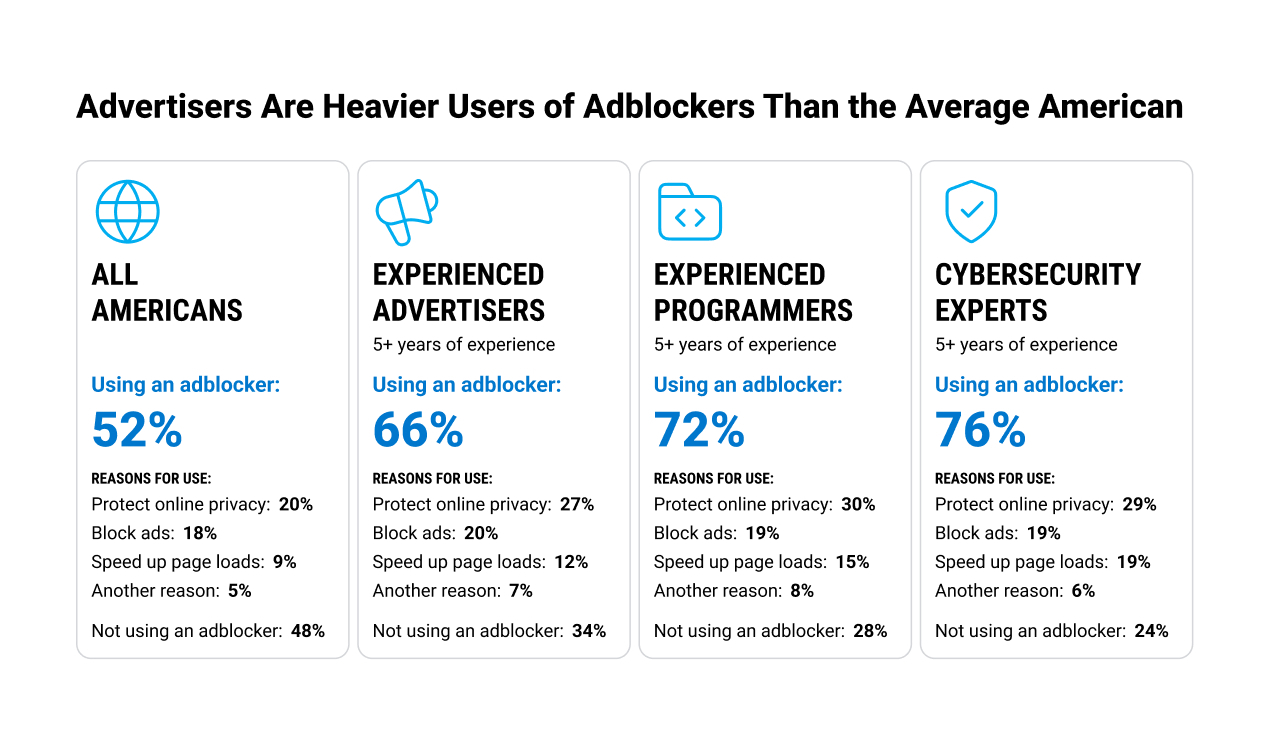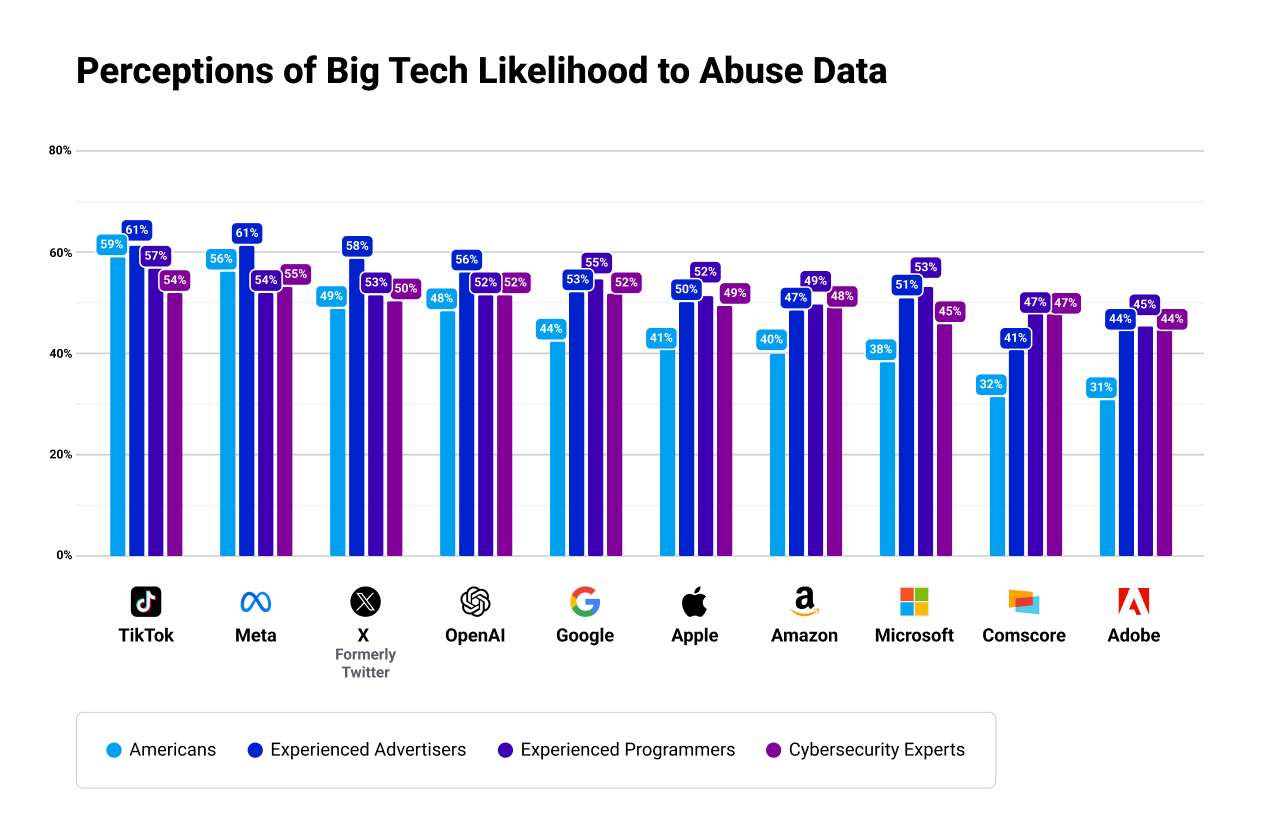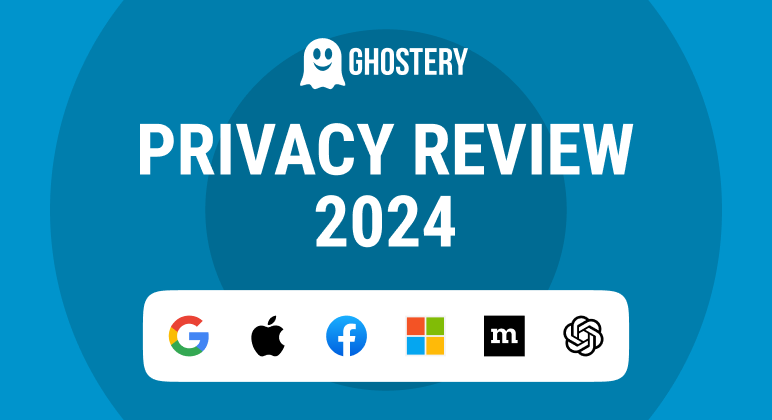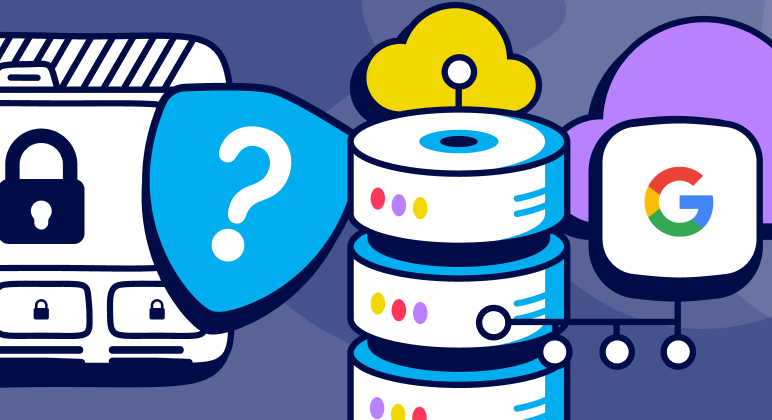Editorial
Introducing Who’s In the Know: The Privacy Pulse Report
Key Points:
- Ghostery’s new report, conducted by third-party research firm Censuswide, finds that individuals who have experience in advertising, programming and cybersecurity are significantly more likely to use adblockers than the average American
- These industry insiders are more skeptical of their online safety, underscoring concerns about the current severity of user tracking
- Americans are underestimating the dangers of health and political tracking
- Lesser-known Big Tech players sow distrust among these experts

Who’s In the Know: The Privacy Pulse Report
The Ghostery report explores the disparity between average Americans and those with experience in advertising, computer programming and cybersecurity when it comes to their knowledge of online trackingand approach to digital privacy. Fueled by data from 2,000 Americans gathered through Censuswide, the findings reveal that those “in the know” are more readily protecting themselves from privacy threats that remain invisible to the general population.
Advertisers Are Protecting Their Data More Than the Average American
While 52% of Americans said they use an adblocker, which is up 18% from a 2022 analysis by Statista, that figure grew to 66% for experienced advertisers (those with five or more years of ad experience).
Notably, advertisers said they were most likely to use an adblocker to protect their privacy, followed by blocking ads, and to a lesser degree, to speed up their page loads.
It’s very telling that individuals who are not only more knowledgeable about the inner workings of the internet, but actually behind the mechanisms for targeted advertising and tracking, are protecting themselves far more than the average American. As these experts shore up their privacy and data protection against their own products, everyday consumers must take action to avoid remaining susceptible to the ever-expanding, invisible world behind their browser.
— Jean-Paul Schmetz, CEO of Ghostery
Advertisers aren’t the only profession protecting their privacy by using ad and tracker blockers.
76% of experienced cybersecurity professionals and 72% of programmers also reported using an adblocker, compared to just 52% of Americans.

YouTube's Crackdown On Ad Blockers Fuels Usage
The usage of adblockers is only growing as the online tracking landscape continues to evolve.
For example, 49% of Americans said that Big Tech’s attempts to enforce advertising and tracking – like Google’s crackdown on YouTube adblocking and browser changes like Manifest V3 – have increased their willingness to use an adblocker. In addition to usage:
- A third of Americans believe that adblockers should be federally protected – a move that even 38% of experienced advertisers support
- 38% of Americans believe they should be able to choose when they see ads online
- 26% of Americans believe the internet should be ad-free by default
Americans Are Underestimating Health and Political Tracking
When asked which privacy concerns are most contributing to their adblocker usage, or would, Americans said they’re most concerned about their:
- Browser/search data (38%)
- Location data (37%)
- Shopping data (33%)
- Health data (33%)
Data being used for political reasons (26%) and data from adult content sites (22%) were lesser concerns. However, different privacy priorities from experts highlight where consumers should really be placing their distrust.
Experienced programmers and cybersecurity experts were both most worried about protecting highly sensitive information, like their health data (48% across these groups), as well as significantly more concerned about their data being gathered and used for political reasons than the average American.
According to data from WhoTracks.Me, these concerns are rightfully placed – popular health websites are littered with trackers, including AARP, Walgreens.com, WebMD and more.
![]()
Lesser-Known Big Tech Players Sow Distrust Among Experts
As Big Tech continues to face public scrutiny over their handling of sensitive user information, a third of Americans said they want to see these companies fined more aggressively for their privacy failings.
When looking at the public’s overall perception of big tech companies, experts in advertising, programming and cybersecurity are more aware of and concerned about the niche companies that play a significant, yet lesser-known, role in the online tracking ecosystem:
- At least a third of all Americans rank TikTok, Meta, X (formerly Twitter), OpenAI, Google, Apple, Amazon and Microsoft as likely to abuse data – TikTok and Meta are the worst public offenders, with 59% and 56% of Americans believing they are likely to abuse personal data, respectively
- Meanwhile, 44% of those experienced in advertising, programming or cybersecurity felt it was likely that Adobe was abusing their data (compared to just 31% of average Americans)
- Between 41% and 47% of those professionals, depending on expertise, were concerned about their data usage with Comscore (compared to just 32% of average Americans)

There’s a clear gap in awareness and action between industry insiders and the general public. But, with the right tools and education, all users can take back control of their personal information and help fight for a future where the internet accurately reflects our shared privacy values.
— Jean-Paul Schmetz, CEO of Ghostery
Tools to Help
Ghostery’s Tracker & Ad Blocker empowers users to take back control of their online experiences. By blocking ads, trackers, cookies, popups & other annoyances, the extension protects your personal information from leaving your preferred browser and creates a more private, transparent and faster internet experience.
Launched in 2009, Ghostery has nearly seven million monthly active users who access the tool via app or browser extension.
The intuitive user interface enables every user to protect their privacy by default, in addition to providing expert users with a broad set of customizable features and settings.
Have questions? Get in touch. We’re always happy to help.
Download the Report
Methodology
All figures, unless otherwise stated, are from Censuswide. Total sample size was 2,000 nationally representative US consumers. Fieldwork was undertaken between January 10-12, 2024. The survey was carried out online. The figures are representative of all US adults aged 16+. Censuswide abides by and employs members of the Market Research Society and follows the MRS code of conduct which is based on the ESOMAR principles.


